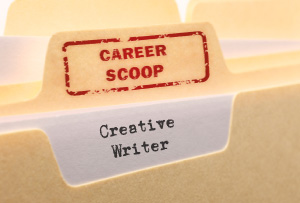Career Insight: Creative Writer
In a nutshell, what do you do?
I write and publish fiction, so far short stories and a novella. I am currently working on a novel about work itself. Being a writer generally means sitting down most days for a few hours and writing, with the hope that you are forming something that is coherent, beautiful and potentially engaging to other people.
Why did you decide to become a writer?
At around the age of 30, in search of a meaningful focus, I decided to take a small creative writing class at TAFE. I had no expectations of becoming a writer. But from that small class I gained further interest and confidence, and received encouragement from a great writing teacher who herself was a successful writer. Deciding to become a writer probably happened a few years after that.
Why did I decide to become a writer? Because nothing matched it in terms of interesting difficulty.
What path did you take into it?
I started taking small local classes at TAFE and community college level, and then began submitting short stories to literary magazines. Each time I got something published, I gained more confidence and increased my commitment. I then undertook Master level studies in creative writing. I won some competitions and received an Australia Council for the Arts grant for emerging writers. This enabled me to stop working for a year and focus entirely on writing a novella that was later published.
What, in your opinion, is the best bit of being a writer?
The best thing about being a writer is that you are free. You are completely in charge of what you create. Creative artists have freedom and that is an extraordinary thing to have. I also love the fact that I can filter the world and my experiences through the creative act of writing literature.
Every job has its downsides. What do you think are the worst bits?
The hardest thing about being a writer is that you often feel like you are failing. You can’t will good writing, and some things just don’t work. You can learn, and practice, and hope, but sometimes a project comes to nothing at all.
Is it what you expected when you first started out – and what’s different?
I don’t think I had any expectations at the start. It was an enormous surprise that I became a published writer. In that way it has been probably the most significantly wonderful thing to happen to me. Expectations came later, after I had some success. What I probably didn’t expect was how hard it is to produce a cohesive piece of work.
What do the public least understand – or mistake – about what you do?
I think one of the mistaken things that people think about writing is that anyone can do it.
What kind of people tend to do well?
Firstly, you have to absolutely love other people’s writing. If you don’t have writing heroes, you’re probably not a writer. You also need talent, patience, tenacity and ambition. Graham Greene said that every writer should have a chip of ice inside his heart, and I agree that this is a useful quality, to be able to detach in order to gather detail from your own life. To sum up, I think that successful writers are those who have talent and decide that they’re not going to give up.
Finally, any advice you’d offer to people looking to get into this line of work?
Firstly, you are never too old to write. Secondly, attending small, local writing classes is a fantastic way to train yourself to write regularly. Thirdly, you may need to find a reliable source of income outside of writing. And lastly, write about what fascinates you. This can feel scary. That’s usually a good sign!




